A Rebuttal to Larry Elder’s Fake History
President John Kennedy would not be a Republican today. This isn’t a subjective or debatable point. The question is, why do so many people like to tell themselves that he would be?
The untimely death of President Kennedy on November 22, 1963, is a unique flashpoint in our common assessment of the recent past. In hindsight, as we are all doomed to understand events, JFK’s passing corresponded with a national loss of hope, innocence, trust, and faith, for both the right and the left. This tragedy also transformed JFK into an iconic symbol, like the flag, that anyone can wrap themselves in, for most any purpose, and hide behind.
When first Reagan and later Trump campaigned on, “Making America Great Again,” their supporters had a vague time period in mind. Somewhere before our capitulation in Vietnam; before the Hippies turned into the Manson Family and domestic leftwingnut terrorists, like the Weather Underground, began setting off pipe bombs; before Federal “overreach” in the form of Civil Rights legislation, the decriminalization of abortion, the Gay Rights “Agenda,” Women “Libbers,” the Great Society, LBJ, and all that. A time before “The Sixties” happened and America was the envy of the world. Somewhere between victory in 1945, up until, Kennedy.
In 2017, Larry Elder — an African American media personality, political commentator, and wannabe California Governor on the Republican ticket — wrote an article in which he took these feelings and crafted them into a fake version of history that seems to have become fairly popular on the right. According to Elder, who both reflects and informs the views of a great many people, the Democratic Party today would be unrecognizable to President Kennedy, while the Republican Party would be a near perfect reflection of his thinking.
Elder’s narrative touches on many fronts in the Culture War that continue to drag on our society and suck up resources, as wars always do. He suggests that America was united under President Kennedy and could be again, if only the Democrats had not become so stupid, extreme, or evil. But when an intellectually honest reading of history is applied to his flimsy evidence and his illogical sidesteps are replaced with straightforward logic, a very different, and much more accurate understanding of the past emerges.
Over the next four posts in this series I will breakdown Elder’s claims, exposing their lack of substance and their heavy reliance on misdirection and out of context details. Here’s a brief overview:
PART 2, Ronald Reagan and Charlton Heston: Elder begins with these two famous Hollywood actors who both left the Democrats to join the Republicans. He tries to suggest that JFK would have had a similar journey, had he lived to see the radical changes that took place, from the mid-1960s to the end of the 1970s.
Elder completely ignores the fact that Reagan had already abandoned the Democrats by 1952, well before Kennedy’s 1960 campaign. Reagan even spoke out publicly in favor of Nixon in 1960. Heston was a supporter of Kennedy, but his views evolved rapidly in a different direction during the second half of the 1960s. By 1972, he was also publicly supporting Nixon. The journeys of Reagan and Heston are not the same and both men had a very different upbringing and development from Kennedy. Elder’s argument here doesn’t line up on any important points. He’s just blowing smoke.
PART 3, Racial Quotas, Tax Cuts, and Foreign Enemies: Elder, on very flimsy evidence, pretends to know President Kennedy’s views on racial injustice, and what that allegedly means for the imagined views of an elderly JFK that never was and never will be. Then he goes on to talk about how weak the Democratic Party allegedly became in the years that followed those three shots in Dallas. Kennedy, Elder insists, believed in, “Peace through Strength.” This is an over simplification to the point of becoming simply nothing.
PART 5, Abortion: Again, Elder cites little in the way of proof to support his conclusions about President Kennedy’s hypothetical views on abortion. An honest look at the slim amount of evidence available on the subject does suggest that JFK’s thinking would have brought him to a Pro Choice position, just as it did with his brothers, Bobby and Teddy.
The big problem that lies beneath Elder’s arguments, is that he makes no attempt to understand who John Kennedy was, or how Kennedy understood liberalism vs. conservatism, or Democrats vs. Republicans. Like conspiracy theorists, who go looking for conspiracies and always find them, Elder set out to “prove” what he wants to believe. That is never the way to find the truth. Those who look to Elder to justify their own mythology, are choosing to be comforted in their opinion, rather than dealing with the discomfort of thought. If you are one of these people, and my words offend you, then prove me wrong by reading the rest of this series.
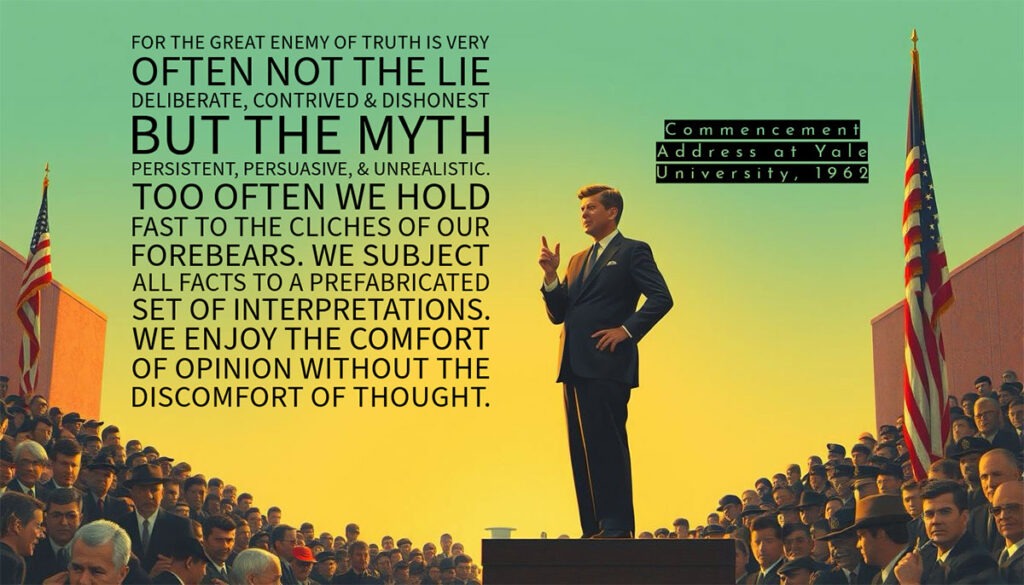
Putting aside Elder, for the rest of this post, allow me to show you a bit of who JFK was and how he understood his beliefs in contrast to the beliefs of his political counterparts across the aisle. What we find, at a fundamental level, is that nearly the same battles of ideas and approaches to government were present in JFK’s time as we face today. Much of the hyperbolic rhetoric also continues to be the same. I am confident that you will see that John Kennedy would not be a Republican, let alone a MAGA-mutation of a conservative today. Even if he were elderly and senile, such a change would go against the core of who he was.
So, who was the real JFK, and what did he truly stand for?
A Proud Liberal
Before Senator John Kennedy announced that he would be running in 1960, the Theologian Reinhold Niebuhr publicly predicted to several members of the press that Kennedy would not only run, he would be the next President of the United States. Once the campaign was underway, Niebuhr proudly introduced JFK to the Liberal Party of New York, when JFK accepted their nomination for the presidency and gave a very definitive speech about why he was a liberal.
The Liberal Party has nearly been forgotten today, but it was an important factor in New York politics, and subsequently, national politics, for decades. It was originally formed by a coalition of liberals and progressives who hoped to pull the Democratic Party, and the country, further to the left, while pushing the American Left away from any support of Communism.
Niebuhr was a leading voice in the Liberal Party and he embodied the changes which many members had likely undergone since the First World War and the Russian Revolution; moving from utopian dreams, awash in socialist theories and pacifist moral certainty, to more pragmatic thinking. While the majority of Americans have forgotten his name, I bet you are aware of the “Serenity Prayer,” which Niebuhr wrote:
God, give me grace to accept with serenity the things that cannot be changed, Courage to change the things which should be changed, and the Wisdom to distinguish the one from the other. Living one day at a time, Enjoying one moment at a time, Accepting hardship as a pathway to peace, Taking, as Jesus did, This sinful world as it is, Not as I would have it, Trusting that You will make all things right…
Niebuhr’s words are a celebration of moderate thinking, which informed Niebuhr’s faith and carried over into his politics, despite the fact that he called his politics, “liberal.” Dr. Martin Luther King cited Niebuhr in his famous, “Letter from Birmingham Jail,” and even as recently as the two thousand teens, right-leaning figures of the Never Trumper variety like Senator John McCain and columnist David Brooks, along with left-leaning figures like President Barak Obama, were speaking admiringly of Niebuhr’s influence on their thinking. Niebuhr’s approach to the faith became known as, “Christian realism,” and the keystone of his political outlook can be summed up in a single line from his book, The Children of Light and the Children of Darkness: “Man’s capacity for justice makes democracy possible; but man’s inclination to injustice makes democracy necessary.”
John Kennedy would certainly have understood this conception of humanity, even if his public rhetoric was more optimistic in its tone. JFK’s speech to the Liberal Party came only two days after he had assured the nation that his Catholic faith would not make him a puppet to the Pope, in a much admired and talked about speech in Houston, Texas. But it wasn’t only the Kennedy Family’s Catholicism that concerned Conservative Protestants like Billy Graham, who were supporting Vice President Nixon.
Without citing his critics by name in New York, Kennedy made reference to Norman Vincent Peale, the author of, The Power of Positive Thinking, who had recently told a conference of, “Citizens for Religious Freedom,” that, “Our American culture is at stake. I don’t say it won’t survive, but it won’t be what it was,” if JFK were elected. Notice how similar Peale’s, “The sky is falling!” accusation is to the accusations carelessly thrown at all Democrats and liberal-minded people today. Similarly, Kennedy alluded to, “a weekly news magazine with wide circulation,” without directly calling out Time magazine, and its feature article, “Kennedy’s Liberal Promises.” They, “described me,” said Kennedy:
as, “the farthest-out liberal Democrat around,” unquote. While I am not certain of the “beatnik” definition of “farthest-out,” I am certain that this was not intended as a compliment.
Sound familiar? Variations on this, and even the exact same words could be used by right-leaning and hard-right liberal haters today in their depictions of any and all popular Democrats who are, allegedly, “too far too the left” for the American People and the American Way of Life. Clearly there is some common through line here, on both the right and the left, that continues to hold this story together and makes such alarmist declarations possible. Clearly there is a line which remains relatively in place, with today’s right and yesterday’s right on one side and President Kennedy, along with today’s Democratic Party on the other.
Just as Republicans and self-descried “conservatives” today like to invoke an imaginary version of a sainted Kennedy, to suggest they are entitled to his blessing, JFK and his rival in 1960 looked to previous iconic figures to help them pursued the voters of their time. In hindsight, there is an eeriness to this next passage from JFK’s remarks that night in New York:
…a more serious challenge to my credentials, this time as a Democrat, was issued in Dallas, Texas. In his address to a large gathering of Texas Republicans, and there are no purer breed anyplace in the United States, Mr. Nixon complained that what he called the party of Schlesinger, Galbraith, and Bowles was not the party of Jefferson, Jackson, and Wilson. I do not agree, but I have no intention of issuing a similar challenge to my opponent’s credentials; for I know full well that the party of Nixon, Dirksen, and Goldwater is the party of Hoover, Harding, Coolidge, McKinley, and the rest.
Here there is a noticeable distance between Kennedy and the Democrats of today, who tend to be far more critical of White Supremacists like Jefferson, Jackson, and Wilson, then Kennedy ever would have been. But that shift has happened across our society in various ways and does not mean that Kennedy was happy with historical racism; only that it was less acknowledged by everyone back then. It is also worth noting the Republican figures that Kennedy omits from his list, like Dwight Eisenhower, Teddy Roosevelt, John Marshall Harlan, and Thaddeus Stevens, who would not fit as easily into the negative stereotypes suggested by, “the rest.” But all comparisons have their limits and all concepts hold a degree of fluidity. As times change, so too does our understanding of terms like, “left and right,” or, “liberal, conservative, and progressive,” and our ability to assess how this or that historical figure would think if brought back to life today. Nevertheless, in a final rhetorical jab, Kennedy accurately invoked the greatest figure in GOP history, suggesting that it was the Republicans who have lost touch with their roots and that, “Mr. Nixon is no Abraham Lincoln:”
I hold out no hope at all for the vast and impressive number of Republicans who suddenly, just before election time — those who are running for office — suddenly begin to sound like true Lincolns.
JFK’s assessment of phony Republicans — Republicans who want nothing from Lincoln but his good name — is more true today than ever. The Republican Party has become the MAGA Party and the Cult of Trump. Were he alive today, President Kennedy could rightly say, “These people aren’t even a Richard Nixon.” And yet they have the willful ignorance to insist that JFK would also be one of them. It’s truly mind numbing.
It is somewhat remarkable, or should I say, rather sad, how little the name calling associated with the word “liberal” has changed since JFK defended himself against the rightwing charges thrown against him:
What do our opponents mean when they apply to us the label, “Liberal”? If by “Liberal” they mean, as they want people to believe, someone who is soft in his policies abroad, who is against local government, and who is unconcerned with the taxpayer’s dollar, then the record of this party and its members demonstrate that we are not that kind of “Liberal.” But, if by a “Liberal,” they mean someone who looks ahead and not behind, someone who welcomes new ideas without rigid reactions, someone who cares about the welfare of the people — their health, their housing, their schools, their jobs, their civil rights, and their civil liberties — someone who believes that we can break through the stalemate and suspicions that grip us in our policies abroad, if that is what they mean by a “Liberal,” then I’m proud to say that I’m a “Liberal.”
In this same speech, Kennedy went on to pay tribute to immigrants, labor unions, and the “promise of America,” while continuing to hammer home the need to stand up against the Soviets. The most telling passage, however, is Kennedy’s summation of his, “political credo:”
I believe in human dignity as the source of national purpose, in human liberty as the source of national action, and the human heart as the source of national compassion, and in the human mind as the source of our invention and our ideas. It is, I believe, this faith in our fellow citizens as individuals and as people that lies at the heart of the liberal faith, for liberalism is not so much a party creed or a set of fixed platform promises as it is an attitude of mind and heart, a faith in man’s ability through the experiences of his reason and judgment to increase for himself and his fellow men the amount of Justice and freedom and brotherhood which all human life deserves.
You can see how this thinking led JFK to support Civil Rights and other things that liberals today would still support. You can also see how the fearful crowd of, “Super Patriots,” on the far right, who stood against JFK, his thinking, and his legislation are fundamentally the same as the far right today, who continue to distrust their fellow citizens. Anyone who does not look like me, worship as I do, or think as I do, cannot be trusted and must be kept in their place. That is the essence of the, “States Rights” mentality, and it lives on today in every new action designed to make voting, “safer,” i.e. to make it harder for, “Those People,” to vote; and every act of scapegoating, fear mongering, and hate leveled against, immigrants, Muslims, gays, trans, and childless cat ladies.
… I do not favor state compulsion when voluntary individual effort can do the job and do it well. But I believe in a government which acts, which exercises its full powers and its full responsibilities. Government is an art and a precious obligation; and when it has a job to do, I believe it should do it. And this requires not only great ends but that we propose concrete means of achieving them.
This is a far cry from the slogans that Governor Reagan would later employ on the presidential campaign trail to express a very different view of the world and rally his base. Mantras like, “Government is not a solution to our problem, government is the problem,” and, “The most terrifying words in the English language are: I’m from the government and I’m here to help.” There was plenty of flag waving in Reagan’s America, but pride in country was peeling away from respect for government in the hearts and minds of millions. While there was certainly an element of jest to Reagan’s talking points — jokes were a big part of his rhetorical style — by January 6, 2021, the humor had been lost. Only a bitter, self-righteous, violent, and willfully ignorant “patriotism” remained. This is a conception of patriotism that would have been foreign to both Kennedy and Reagan, but one for which Reagan bears at least some responsibility and Kennedy bears none. Nothing JFK ever said can be logically linked to the, “Hang Mike Pence!” crowd, in anyway.
There Are No DINOS
The core of the Democratic Party, at least the version of it that developed in northern states, has continued to hold to a sometimes liberal, sometimes progressive, sometimes socialist conception of government since the election of FDR in 1932. JFK, RFK, and LBJ, were all a part of this tradition, and so too are Bill Clinton, Barack Obama, Joe Biden, and Kamala Harris. Particular policy positions have changed, but their overall outlook remains the same. You never see Democrats denouncing life-long members of their party as “DINOS” (Democrats In Name Only) for not getting on the extremist bandwagon, as you regularly see Republicans denouncing even their most prominent figures, like President George W. Bush and Vice President Dick Cheney, as “RHINOS” (Republicans In Name Only).

President John Kennedy would not be a Republican today because the criticisms he leveled against the GOP in his time continue to be true. For example: Republicans have traditionally opposed and denounced new government programs and regulations, including Social Security and the 40 hour work week, and that continues to be the case with new programs and regulations, like Obama Care and proposals for a 32-hour workweek.
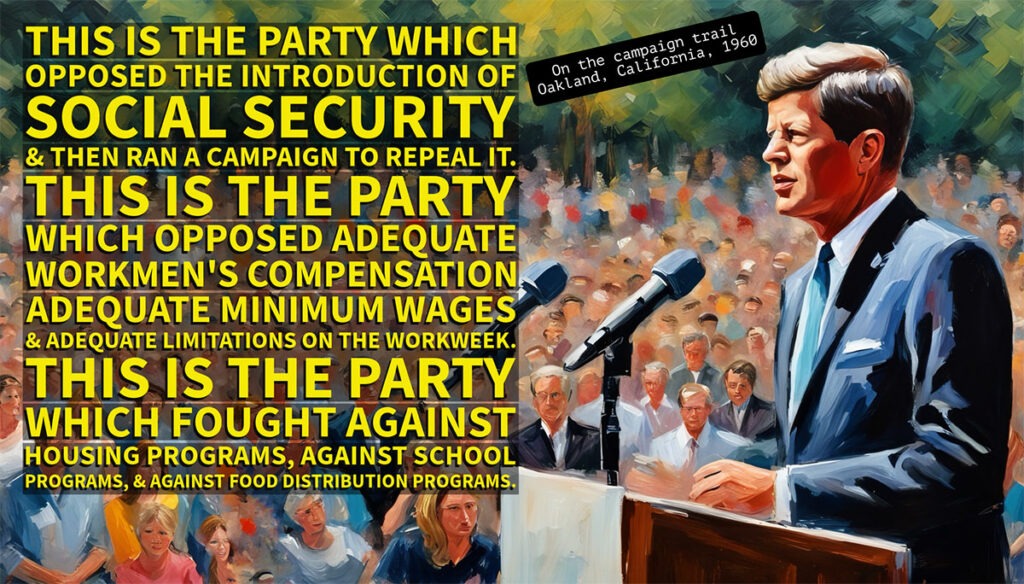
More importantly, President John Kennedy would not be a Republican today because the growing faith in conspiracy-obsessed fears and hatreds on the right are the exact opposite of the interconnected, cooperative world that he fought for. The mainstream of the Republican Party, which is flowing further and further out to sea, has nearly become a new John Birch Society, which JFK unequivocally opposed during his time in the White House.
Facts Matter
In his Commencement Address at Yale University, on June 11, 1962, President Kennedy discussed the need to make wise economic decisions, but he made no appeal to dogmatic ideologies about taxation or government spending and the like. Instead, he disputed common misconceptions, like the idea that the government was growing too large, and emphasized the fact that we do not need more, “partisan wrangling.” Instead, we need a, “common concentration on common problems.” As he saw it, many of the problems we face, “are technical problems,” and do not benefit from, “ideological preconceptions.” He emphasized the importance of searching for the truth and the need for compromise. And he lamented the “stereotypes” and over simplifications, based on previous assumptions, that make up much of our political debates, because:
These stereotypes do our Nation a disservice, not just because they are exhausted and irrelevant, but above all because they are misleading–because they stand in the way of the solution of hard and complicated facts. It is not new that past debates should obscure present realities. But the damage of such a false dialogue is greater today than ever before simply because today the safety of all the world–the very future of freedom–depends as never before on the sensible and clearheaded management of the domestic affairs of the United States.
John Kennedy was a diehard Democrat from a family of diehard Democrats. He firmly believed that the Democrats had better ideas and a better conception of how to utilize the government to improve the lives of the people and strengthen our republic. Were he alive today, there is no good reason to assume he would see things differently.
But JFK was not just a partisan. He did not fight for this country and his older brother did not die for this country in the name of the Democratic Party. He understood what those on the right who falsely invoke his name for their causes do not. America works best when we see our fellow citizens as people we must work with, like it or not. And America cannot continue to be a functional republic if political opponents are seen as enemies that must be destroyed.
We are moving in the opposite direction from what JFK challenged us to live up to. We are making everything about stereotypes and previous assumptions. We are ignoring technical, solvable problems, in order to engage in more ideological battles over increasingly childish things. And the political right, especially now that it has come under the spell of a self-serving con man, is doing the most to widen the divide and push us down into the abyss they have created.
If you want to look to President John F. Kennedy as a hero or a symbol of American Greatness, by all means, do that. But first, understand his actual legacy, rooted in liberalism and the Democratic Party. It was from this footing that JFK maintained a steadfast commitment to democratic ideals and the norms of our republic. He believed in national united through debate and compromise. His vision was one in which government is a force for good. He emphasized the importance of facts and technical expertise, not divisive and conspiratorial rhetoric. And his actual beliefs are worthy of thoughtful consideration, to help us navigate contemporary challenges. For, in the final analysis, it is up to us to confirm his faith in the ability of the American people to rise above partisanship, or to prove him wrong.
As then, Senator Kennedy put it in a 1958 speech: “Let us not seek the Republican answer or the Democratic answer, but the right answer. Let us not seek to fix the blame for the past. Let us accept our own responsibility for the future.” This vision remains as relevant today as it was during his time, but we are not going to get there if we cannot even be honest about who President John Fitzgerald Kennedy truly was.

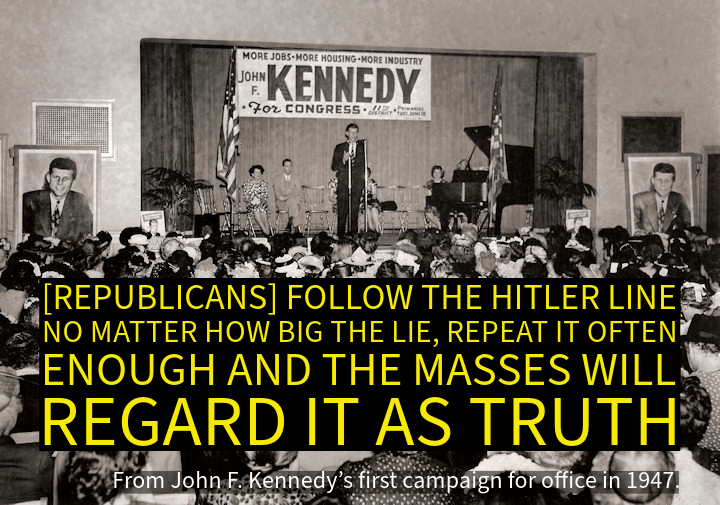


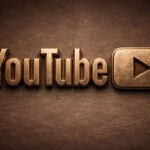
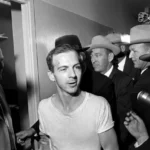
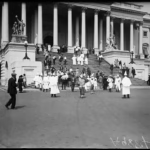
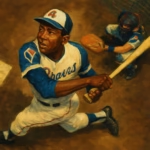
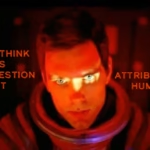
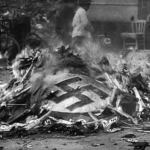
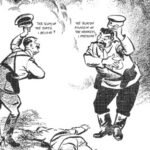


Leave a Reply